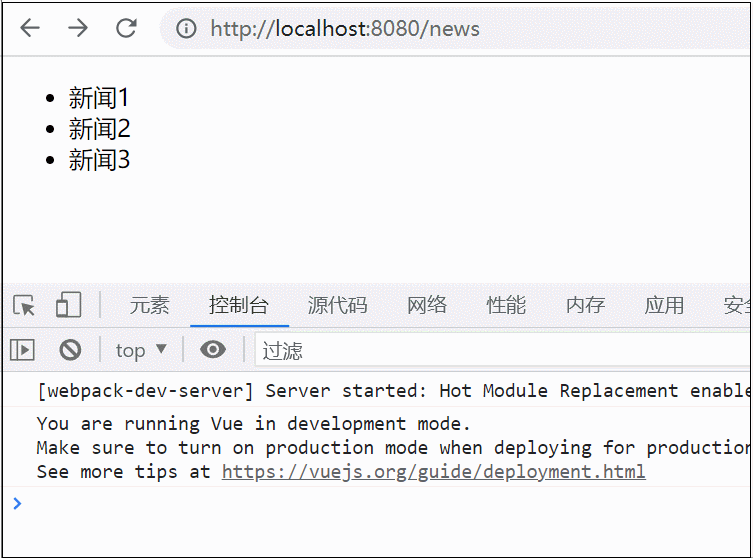再看那柔弱的柳树吧,在寒冬余威尚盛时节,就早早苏醒过来,望着冰冻的河面,迎着凛冽的寒风,它微微察觉出一丝春意,于是,不顾一切地率先吐翠,淡淡地披起娇黄嫩绿的新装。沿河望去,枝梢间烟纱雾彀,一片生机,这情景仿佛一首动人的歌,一首热烈向往春天的歌,一首报告春的信息的歌,一首表达美好信念的歌。我在想:既然迎春花被人称作报春花,那么,柳树可不可以叫作报春树呢春来了,万千柳枝在春风中袅袅舞动。柳树是热爱春天的,春天也是热爱柳树的。
本文实例讲述了vue从零实现一个消息通知组件的方法。分享给大家供大家参考,具体如下:
利用vue从零实现一个消息通知组件
平时,我们肯定用过类似element-ui,antd等一些UI框架,感受它们带给我们的便利。但当我们的需求或者设计这些框架内置的相差太大,用起来,就会觉得特别别扭,这时候,就有必要自己来重新造轮子。
重新造轮子,有几个好处,1.所有代码都是服务你的业务,没有太多用不上的东西。2.代码是由自己维护,而不是第三方,方便维护。3.提升自己的视野,让自己站在更高的角度来看问题。
好了,那话不多说,开始我们的组件开发吧!
文件目录的组件
工欲善其事,必先利其器,要想实现一个组件,一个好的目录结构,即可以划分职责,不同模块处理不同的逻辑!
我的目录结果是这样的:
接下来,我们依次对notification.vue, notify.js, index.js三个文件作介绍。
notification.vue
notification.vue是一个负责消息通知组件的视觉呈现,里面的逻辑很简单。
<template>
<transition name="fade" @after-enter="handleAfterEnter">
<div class="notification" :style="style" v-show="visible">
<span class="notification__content">
{{content}}
</span>
<span class="notification__btn" @click="handleClose">{{btn}}</span>
</div>
</transition>
</template>
<script>
export default {
name: 'Notification',
props: {
content: {
type: String,
required: true
},
btn: {
type: String,
default: '关闭'
}
}
}
</script>
<style lang="less" scoped>
.fade-enter-active, .fade-leave-active{
transition: opacity 1s;
}
.fade-enter, .fade-leave-to{
opacity: 0;
}
.notification{
display: flex;
background-color: #303030;
color: rgba(255, 255, 255, 1);
align-items: center;
padding: 20px;
position: fixed;
min-width: 280px;
box-shadow: 0 3px 5px -1px rgba(0, 0, 0, 0.2), 0px 6px 10px 0px rgba(0, 0, 0, 0.3);
flex-wrap: wrap;
transition: all 0.3s;
&__content{
padding: 0;
}
&__btn{
color: #ff4081;
padding-left: 24px;
margin-left: auto;
cursor: pointer;
}
}
</style>
notify.js
notify.js是一个处理消息通知组件的逻辑部分,其主要作用是暴露一个notify的方法出去。代码如下:
import Vue from 'vue'
import Notification from './notification'
const NotificationConstructor = Vue.extend(Notification)
const instances = []
let seed = 1
const removeInstance = (instance) => {
if (!instance) return
const len = instances.length
const index = instances.findIndex(ins => instance.id === ins.id)
instances.splice(index, 1)
if (len <= 1) return
const removeHeight = instance.height
for (let i = index; i < len - 1; i++) {
instances[i].verticalOffset = parseInt(instances[i].verticalOffset) - removeHeight - 16
}
}
const notify = (options = {}) => {
if (Vue.prototype.$isServer) return
// 获取vue实例
let instance = new NotificationConstructor({
propsData: options,
data() {
return {
verticalOffset: 0,
timer: null,
visible: false,
height: 0
}
},
computed: {
style() {
return {
position: 'fixed',
right: '20px',
bottom: `${this.verticalOffset}px`
}
}
},
mounted() {
this.createTimer()
this.$el.addEventListener('mouseenter', () => {
if (this.timer) {
this.clearTimer(this.timer)
}
})
this.$el.addEventListener('mouseleave', () => {
if (this.timer) {
this.clearTimer(this.timer)
}
this.createTimer()
})
},
updated() {
this.height = this.$el.offsetHeight
},
beforeDestroy() {
this.clearTimer()
},
methods: {
createTimer() {
this.timer = setTimeout(() => {
this.visible = false
document.body.removeChild(this.$el)
removeInstance(this)
this.$destroy()
}, options.timeout || 3000)
},
clearTimer() {
if (this.timer) {
clearTimeout(this.timer)
}
},
handleClose() {
this.visible = false
document.body.removeChild(this.$el)
removeInstance(this)
this.$destroy(true)
},
handleAfterEnter() {
// eslint-disable-next-line no-debugger
this.height = this.$el.offsetHeight
}
}
})
const id = `notification_${seed++}`
instance.id = id
// 生成vue中的$el
instance = instance.$mount()
// 将$el中的内容插入dom节点中去
document.body.appendChild(instance.$el)
instance.visible = true
// eslint-disable-next-line no-unused-vars
let verticalOffset = 0
instances.forEach(item => {
verticalOffset += item.$el.offsetHeight + 16
})
verticalOffset += 16
instance.verticalOffset = verticalOffset
instances.push(instance)
return instance
}
export default notify
index.js
index.js主要是对notification.vue组件实现注册,notify方法的挂载。代码如下:
import Notification from './notification'
import notify from './notify'
export default (Vue) => {
Vue.component(Notification.name, Notification)
Vue.prototype.$notify = notify
}
在main.js引入
import Notification from './components/notification' Vue.use(Notification)
使用
this.$notify({
content: 'Hello'
})
效果

希望本文所述对大家vue.js程序设计有所帮助。
以上就是vue从零如何实现一个消息通知组件的方法详解。从外打破是食物,从内打破是性命;人生,从外打破是压力,从内打破是成长。更多关于vue从零如何实现一个消息通知组件的方法详解请关注haodaima.com其它相关文章!




